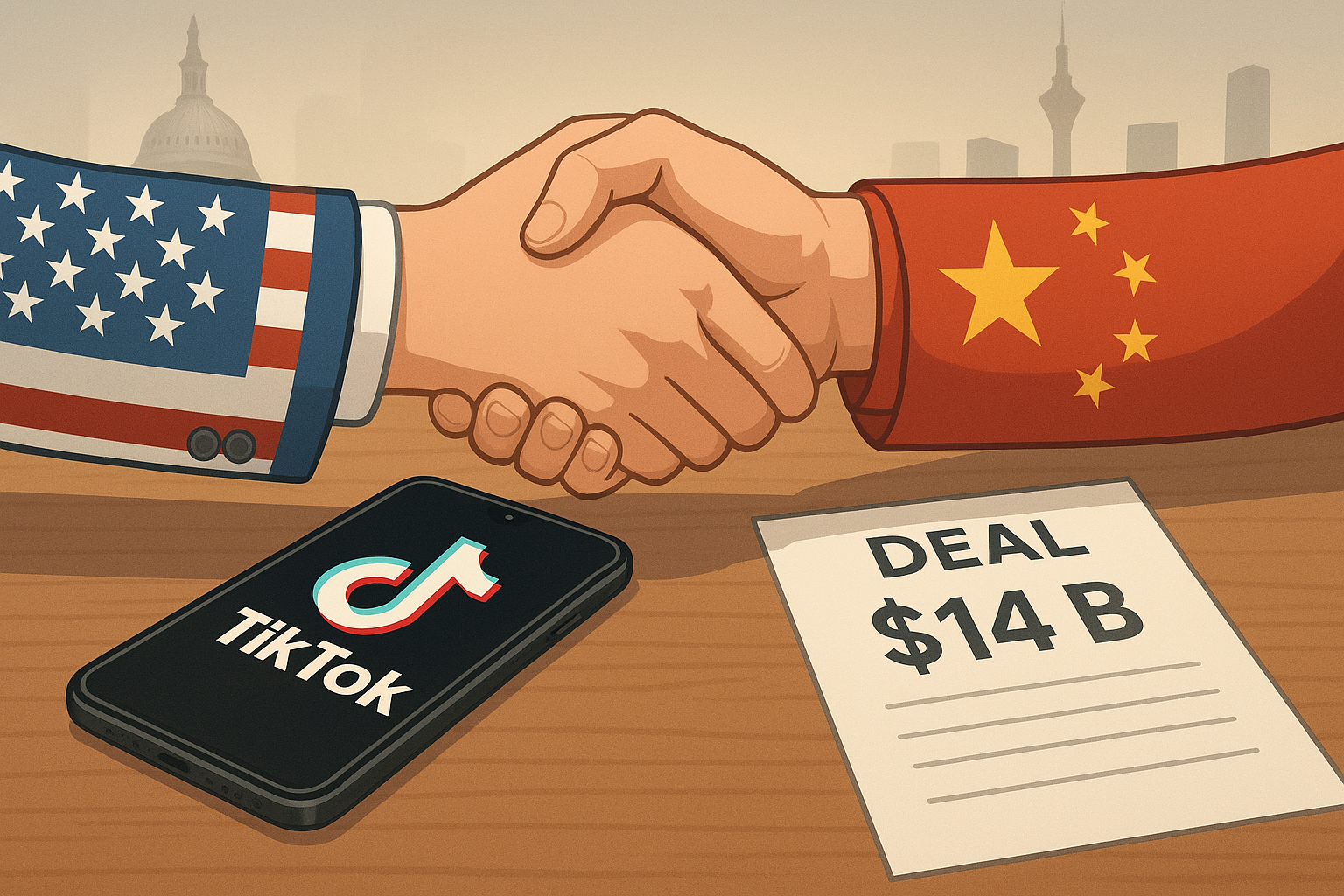In a head-spinning reversal that has Washington insiders scrambling to update their talking points, President Donald Trump just signed an executive order approving a $14 billion TikTok deal that keeps the wildly popular app operating in American thumbs. The arrangement—complex, politically convenient, and still requiring Beijing's blessing—creates a new structure where ByteDance maintains a minority stake just shy of 20%.
Wait, what?
Wasn't this the same administration that was threatening a complete ban just weeks ago? The same president who insisted ByteDance must fully divest or face digital execution?
Indeed it was. And that's what makes this pivot so fascinating.
The deal's $14 billion valuation (confirmed by VP Vance himself) represents a dramatic discount from earlier estimates that had floated as high as $50 billion. But here's the thing—nobody's actually saying who's paying what to whom. That silence speaks volumes.
Saving Face, American-Style
Look, what we're witnessing is political theater at its finest—a carefully choreographed dance where everyone gets to claim victory while the substantive questions remain conveniently fuzzy around the edges.
Trump gets his "win." ByteDance avoids selling its golden goose. American investors snag a piece of social media's hottest property.
I've covered technology standoffs between Washington and Beijing since 2018, and they typically end in one of two ways: complete capitulation or messy compromise. This one falls squarely in the latter category.
The joint venture structure is particularly telling. Rather than forcing a clean sale (which was the original demand, remember?), we've landed on fractional ownership—the corporate equivalent of "let's just be friends... with benefits."
For Trump, the story is about bringing TikTok under American oversight. For ByteDance, it's about maintaining influence while throwing just enough bones to satisfy U.S. security hawks.
Show Me the Money (No, Really, Show Me)
Something doesn't add up with that $14 billion figure.
Previous valuations had TikTok's U.S. operations worth substantially more. This dramatic markdown suggests either ByteDance made enormous concessions or—more likely—this deal preserves far more Chinese control than initial demands would have permitted.
The questions practically ask themselves: Who exactly holds the other 80-plus percent? What voting rights come attached to those shares? And who controls the algorithms that actually make TikTok... well, TikTok?
I spoke with three tech investment bankers yesterday (all requesting anonymity because they weren't authorized to discuss the deal). Each expressed the same skepticism about whether ownership percentages actually reflect true operational control.
"The technical infrastructure matters more than the cap table," one told me while nursing a coffee in downtown San Francisco. "You can own 80% of something and still not control how it works."
National Security Theater?
Remember why we started down this road in the first place? Concerns that American user data might wind up in Chinese government hands, or that ByteDance could subtly manipulate the algorithm to influence American users.
Does this new arrangement actually address those fears? That's... unclear. A minority ByteDance stake doesn't necessarily wall off data access if technical systems remain integrated. And algorithm oversight is notoriously difficult to implement—sort of like trying to audit someone's thought process.
(I've tried to get clarification on these security provisions from three different administration officials. So far, crickets.)
What we might be seeing is a compromise that satisfies immediate political needs while kicking the substantive security questions down the road for technical teams to figure out—or possibly, quietly ignore once the headlines move on.
The Chinese Card
And then there's that final, crucial qualifier: "...which China must still approve."
Beijing holds a powerful card here. Their reaction will tell us volumes about how they view TikTok in their broader technology strategy with the United States.
If they greenlight this deal quickly? They likely see it as maintaining adequate influence while defusing a diplomatic flashpoint. If they reject it? We're looking at evidence they view even partial American ownership as a dangerous precedent for other Chinese tech giants.
Either way, what began as an American unilateral action has morphed into something that looks suspiciously like a negotiated settlement between competing superpowers. ByteDance, for its part, is stuck playing piggy-in-the-middle.
Market Aftershocks
For the broader social media landscape, this deal creates ripple effects nobody anticipated a month ago. Facebook, Snapchat, and YouTube executives were likely quietly hoping for TikTok's American demise—one less competitor for those precious advertising dollars and, more importantly, user attention minutes.
No such luck. Now they face continued pressure from a platform that has shown unprecedented growth among younger users—the demographic every platform covets.
The relatively conservative $14 billion valuation might also prompt some uncomfortable questions about other social media valuations in a market where user growth metrics have begun to plateau.
The Real Lesson
If there's anything this twisted tale teaches us, it's that despite all the tough talk about technological decoupling between America and China, the reality tends toward messy compromise rather than clean breaks. Economic interests, user preferences, and the global nature of technology make binary choices politically unpalatable and practically impossible.
This isn't so much a resolution as a temporary accommodation—one that will likely become the template for how other Chinese technology companies navigate the increasingly treacherous waters of U.S. regulation.
For TikTok's hundreds of millions of users, though, the takeaway is simpler: your favorite dances and challenges aren't going anywhere... at least not yet. And perhaps that continuity was what everyone secretly wanted all along, even if getting there required more plot twists than your average viral video.
